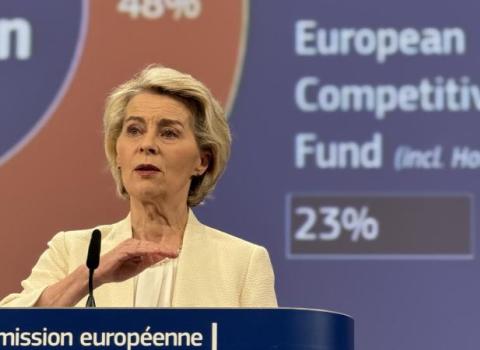The Canada-EU deal on investment and trade agreed last week, is not only important in its own right as Europe’s first free trade agreement with a Group of Eight (G8) nation, but also in providing a template for a bigger pact with the US.
The Comprehensive Economic and Trade Agreement (CETA) will see over 99 per cent of tariffs between Europe and Canada eliminated, as well as a liberalisation of industrial tariffs, saving EU exporters an estimated €500 million in duties every year. The Commission’s promise is that the agreement will increase bilateral trade by 22.9 per cent a year, or €25.7 billion, when it comes into effect in 2015.
In addition, CETA will open up service sectors including telecommunications, energy, transport, and financial services and for the first time, all levels of government in Canada will let European companies bid for public contracts. CETA will also bring intellectual property protection in Canada in line with the EU and other major world economies. This will be of particular interest to the European pharmaceutical sector, whose branded drugs will now be protected for longer.
These are important concessions, but agreement is also significant in the context of Europe’s wider free-trade efforts, which so far have only secured smaller deals with South Korea and Singapore. CETA previews some of the issues, such as the European stance on genetically-modified organisms and consumer and environmental protection, which must be finessed if there is to be an EU-US trade pact.
“This agreement with Canada not only gives an important boost to transatlantic commerce and economic integration, it gives a boost to the talks now underway with the US,” said Richard Bruton, Irish Minister for Jobs, Enterprise and Innovation,
CETA will be the basis for gaining a strong foothold in the North American market providing “a catalyst for growth and the creation of jobs in Europe,” said European Commission President, José Manuel Barroso. Overall, the agreement could lead to GDP gains for the EU of up to €11.6 billion per year, the Commission claims.
The technical discussions based on the political agreement will now have to be completed. The measure must be approved by all 28 EU member states, the European Parliament and the federal and provincial governments in Canada. The deal is expected to be implemented in 2015.
While negotiations on the putative EU-US Transatlantic Trade and Investment Partnership scheduled for this month were postponed in light of the US government shutdown, the European Commission did get the nod from trade ministers across the EU to begin negotiating an investment agreement in China. The talks are due to begin at the EU-China summit next month.
Patent protection for pharmaceuticals





 A unique international forum for public research organisations and companies to connect their external engagement with strategic interests around their R&D system.
A unique international forum for public research organisations and companies to connect their external engagement with strategic interests around their R&D system.